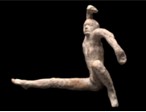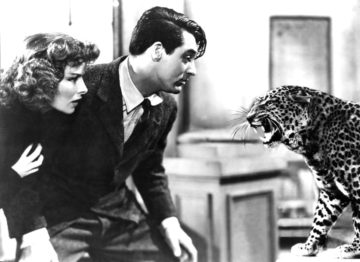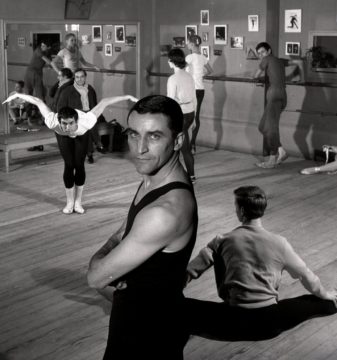by Ada Bronowski
 The philosopher Aristotle, who lived in the 4th century BC, wrote in The Nicomachean Ethics that you cannot become good without practice. Even the ideal utterly good person whose every action is carried out at the right time for the right reason, has gone through a long process of trial and error; their ultimate victory over bad tendencies, precipitous judgement and external obstacles is a victory achieved through blood, sweat and tears. Aristotle’s promise is that the effort that engages both body and mind– if carried through with constancy and a bit of luck – will some day be sublimated into a way of being which will become both effortless and wholly constitutive of the moral agent. True enough, this ideal remains somewhat shrouded in the mist of a far-away horizon, but the path is paved, however arid and mountainous it may be. With the help of guides and maps, models and teachers, it is up to us to commit to the daunting effort.
The philosopher Aristotle, who lived in the 4th century BC, wrote in The Nicomachean Ethics that you cannot become good without practice. Even the ideal utterly good person whose every action is carried out at the right time for the right reason, has gone through a long process of trial and error; their ultimate victory over bad tendencies, precipitous judgement and external obstacles is a victory achieved through blood, sweat and tears. Aristotle’s promise is that the effort that engages both body and mind– if carried through with constancy and a bit of luck – will some day be sublimated into a way of being which will become both effortless and wholly constitutive of the moral agent. True enough, this ideal remains somewhat shrouded in the mist of a far-away horizon, but the path is paved, however arid and mountainous it may be. With the help of guides and maps, models and teachers, it is up to us to commit to the daunting effort.
Therein, of course, lies the rub. It is contained in two words: constancy and effort. And with them, the beginning and ending of morality.
Aristotle himself is rather pessimistic about his beautifully elaborated enterprise. He ends his Ethics – as explosive and powerful then as it is now (my goggle-eyed students confirm as much) – with a note to the effect that failing, as we almost all do, to become the ideal moral agent, through lack of time, will or stamina, we should rest content with obeying the laws of the land. They have been written by wiser people than us and especially are the fruit of a collaboration over generations of joint – if curtailed – effort towards the good. If constancy cannot be maintained over one’s own individual lifetime, a constancy over generations in the concern for constancy and the realisation of personal failure to live up to it, is an honourable compromise. If moral behaviour is a mirage some of us like to pursue more than others, a collective acknowledgement that we try and fail is the best we can do, building legal systems across political eras that make up for personal inconstance, laziness and lack of energy to improve.
When we think that Oscar Wilde’s The Importance of Being Earnest is translated into French as L’Importance d’être Constant, we can measure the gap between the English language’s genius propensity for silliness and French’s deeply embedded irony: Earnest’s earnestness is flippant naivety, but Constant’s constancy cannot be anything but an antiphrasis. The play is utterly different when it is played in English or in French: a satire filled with double-meanings in the first, a comedy of manners filled with dark humour in the second. The importance of constancy is all the more important that it is a human ideal that no one expects anyone to live up to. Anyone can be earnest; and many people are – sadly. The bottom line is that constancy, unlike earnestness, is no trifling matter. It is a dream of goodness, an unattainable image of supremely human behaviour that human beings have been theorising about how to achieve since the birth of philosophy – that art of finding out on your own how to be good. An art doomed to failure, but Sisypheanly passed on from one philosophical school of thought to the other.
The injunction to constancy and effort from the philosophers encounters one structural challenge: namely to whom, or what, it is addressed. The answer traditionally is the rational soul, the intelligent part in us – the part that sometimes can make us stop and think and which, according to different philosophers is more or less of the whole of us. If we are part beastly, and only a little bit rational, then the greatest hurdle as Plato showed us already, is to convince the beast within to be tamed by reason.  But this poor, wandering little soul of ours, which lacks a body to defend it from the body, what can it do in the face of beastly flesh? It is the emperor Hadrian who gives the soul all its frail fleetingness:
But this poor, wandering little soul of ours, which lacks a body to defend it from the body, what can it do in the face of beastly flesh? It is the emperor Hadrian who gives the soul all its frail fleetingness:
Animula vagula blandula
Hospes comesque corporis
To dare to add to the prestigious list of translators of these famous lines written, so says the Historia Augusta, by the great Roman Emperor in his dying days (in the year 138 of our era), from Lord Byron to Marguerite Yourcenar would be outrageous. And yet, not one translation out of the many which the nebulous mystery of the poem, which all in all is five lines long, has titillated, succeeds in grasping its bare literality. The little soul (‘animula’), the wandering, tender little thing, which is at once the guest and the companion of the body…what is it exactly to the body?
For Yourcenar, the soul here, is ‘companion of my body, which was its host’, for Byron, ‘the gentle, fleeting, wav’ring sprite’ is ‘friend and associate of this clay’. Both dig the vein of the poem as the saddest-poem-in-the-world. But read the words, feel the light-hearted jumpiness, the beyond simple versification: surely the poem is the saddest poem in the world and at the same time a very funny joke – not an incompatible state of affairs. And it is all the more joke that it is the master and commander of the Roman empire who writes like this of his soul. The Renaissance French poet Pierre Ronsard captures this funny-fatal side best in his parodic translation:
Amelette Ronsardelette,
Mignonnelette doucelette,
Tres-chere hostesse de mon corps
Inventing diminutives of diminutives: ‘little-itsy soul’, ‘sweet, tender little thing’, ‘dearest guest of my body’, Ronsard also layers in self-derision (‘Ronsardelette’), and a satire of the epitaphic form, as also a satire of linguistic preciousness, the pomposity of sending away one’s soul. The poem ends by wishing the soul good fortune in the underworld and leave the poet be: ‘I am sleeping’. Atheism, and a touch of materialism are not far away.
The perplexing pairing in emperor Hadrian’s poem of the little soul being both ‘guest and companion’ (hospes comesque) is suggesting that being both, the soul is trapped in a love-hate relationship: little soul, you are the light and the bane of my body. You have come to give it life and in so doing you have cursed it by showing it all the good and all the bad it can only ever partake of in bits, with glimpses.
It is this soul, this flimsy vagabond thing to which the ethicist addresses his advice of effort and constancy. Is it possible that the philosopher, who urges us to build our upright character through the practice and commitment to right action, is addressing himself to the wrong end of the stick? The little soul has not got it in it to make constant efforts to be good – just surviving is hard enough. And so, from Hadrian to Ronsard, the reaction cannot but be to laugh – a crying sort of laughter, certainly, but laughter all the same. The soul, the little soul, is powerless without the body. Perhaps, it is to the body that such commands should be directed?  Hadrian built his mausoleum, today the Castel Sant’Angelo in Rome, the massive, stolid, indestructible castle for his body – not his escapist blandula animula.
Hadrian built his mausoleum, today the Castel Sant’Angelo in Rome, the massive, stolid, indestructible castle for his body – not his escapist blandula animula.
This is the conclusion that Lucian of Samosata, essayist, parodist, satirist and philosopher of a unique kind, arrived to, a generation after Hadrian. In a text entitled On Dance, he makes two fundamental, ground-breaking claims: firstly that the body thinks, and secondly that dance is the expression of a complete philosophy. Dance is the crowning of all arts, by which Lucian means the dancer needs to know them all, just like the lover of wisdom in Plato’s Republic needs to undergo an education that encompasses every branch of knowledge in order to reach the ultimate lessons of philosophy. Only the dancer is not a philosopher but a ‘cheirosopher’, a coinage Lucian constructs in echo to the philosopher with the addition of ‘cheiros’: gesture. The dancer as philosopher.
‘The dancer understands everything that was, is and will be’. The dancer expresses this understanding in a way that no spoken discourse can ever hope to: namely by never saying what is not – for the body cannot lie. What does the dancer learn? How does the dancer learn? Through trial and error, the dancer puts into practice the right actions.
It is the great French choreographer Maurice Béjart (1927-2007) who wrote so expressively about the routine and the discipline which are the essential conditions for the development of the dancer.  To get anything done, one must go back to the basics and reiterate everyday, seemingly uninspiring work. In dance, this routine is concretely effectuated through the daily exercises at the bar. The bar is a ‘common-place’ as Béjart says, re-investing the notion of a commonplace by making its literal meaning re-emerge: the bar is a common place, a shared place where all dancers come to, and from which all work evolves. The abstract common-place, which one forgets to remember, becomes concrete: it is a place, the bar, a time, the routine where the primary material, the body, is shaped and kneaded. Constancy now is impossible to escape; we have a fixed rendez-vous: every morning at the bar. It is not longer the other way round, where reason, expected to exert constant control over the body, is always on the verge of disapearing.
To get anything done, one must go back to the basics and reiterate everyday, seemingly uninspiring work. In dance, this routine is concretely effectuated through the daily exercises at the bar. The bar is a ‘common-place’ as Béjart says, re-investing the notion of a commonplace by making its literal meaning re-emerge: the bar is a common place, a shared place where all dancers come to, and from which all work evolves. The abstract common-place, which one forgets to remember, becomes concrete: it is a place, the bar, a time, the routine where the primary material, the body, is shaped and kneaded. Constancy now is impossible to escape; we have a fixed rendez-vous: every morning at the bar. It is not longer the other way round, where reason, expected to exert constant control over the body, is always on the verge of disapearing.
The question is what makes us most human. Is it our rational soul? Or is it something in our bodies that enable us – some of us, through effort and constancy – to achieve total control of our bodies, so as to dance. And is the body – being less ‘vagula’, fleeting, than the soul – a more reliable basis to work on? The dancer undergoes a learning process to control their centre of gravity, to balance and stand upright. An effort that is destined to sublimate into effortless poise. Indeed, you can spot a dancer from miles away – on and off the stage, the upright posture of a dancer is wholly constitutive of the person they are. It is the promises Aristotle makes (the effort that will become effortless) made real.
The dancer works on their centre of gravity in a way that mirrors the development a moral compass. It is not such a leap to project that the dancer learns not only to stand upright and thereby be in control of the whole body’s movements, but also how to be upright from a moral perspective.
Nietzsche in Thus Spoke Zarathustra – but in a number of other texts as well, so important was dance for his idea of the possibility of self-realisation – writes: ‘I shall never believe in a god that does not dance’. For him, dance is both a liberation of the self and an acknowledgement of a shared common rhythm that we must, each individually, discover for ourselves. For Nietzsche, dance is an earth-bound guarantee of man’s belonging to nature. But his dance is in many ways an anti-philosophy, one which emancipates us from concerns about good and evil, right or wrong. That is also where his dance wavers between knowledge and the paean to a primitive ignorance. He is as such, quite the opposite of Lucian’s cheirosopher.
For the cheirosophic dancer, just as their body naturally develops towards never slouching, so in terms of character, the dancer – who never ceases to work on control over their body – also works on becoming a moral agent. Crucially: the dancer is not learning anything more than being a dancer in becoming a moral agent. For if morality and moral responsibility can be roughly considered to be a matter of weighing over what is in our control (for instance, refraining from violent tendencies), and letting go of what is not in our control (for instance, what other people think about oneself), then the dancer should naturally develop a moral appreciation of their actions in society.
Everyone should learn how to dance.
